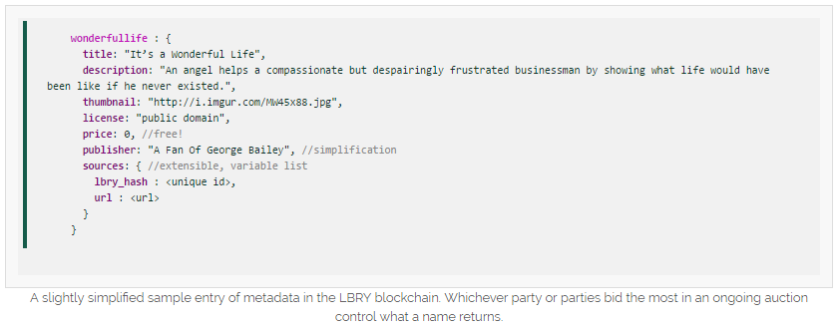 Since the days of Napster, rights owners have bemoaned the tendency for illegitimate sources of content to crowd out legitimate sources online. “You can’t compete with free,” is the age-old cry.
Since the days of Napster, rights owners have bemoaned the tendency for illegitimate sources of content to crowd out legitimate sources online. “You can’t compete with free,” is the age-old cry.
But a blockchain-based startup called LBRY believes it has come up with an approach to distributing digital content that could re-balance those scales.
LBRY (pronounced “library”) released an invite-only beta version of its client on July 4th and last week began issuing LBRY Credits (LBC), the cryptocurrency it will use for transactions on its network, which are listed on the Bittrex exchange. It’s key innovation, though, is the LBRY protocol, which acts like a combination of HTTP and DNS.
In addition to maintaining balances of LBRY Credits and managing payments, the LBRY blockchain provides a decentralized lookup and metadata storage system. Anyone can bid on a name (using LBC), which functions much like a web domain. Whoever controls the name/domain can describe what it contains, such as identity of the content it refers to, where it is located, who owns it, whom and how to pay, or how to retrieve a decryption key if the content is encrypted.
The LBRY client functions like a web browser, allowing users to search and browse lbry:// names and the LBRY data network performs a lookup and then initiates a stream, using a peer-to-peer protocol, once the conditions specified in the metadata for accessing the content are satisfied.

It’s also possible for the metadata associated with a name to include the location of content elsewhere on the web, such as its Netflix URL, making it possible for LBRY to catalog content not published to the LBRY blockchain.
Unlike web domains, however, control of LBRY names is determined at any given time through a continuous running auction using LBC. When a user looks up a name the lookup resolves to whoever has the highest current bid for that name. There is no central registry that associates the name permanently with a specific IP address, although the party that currently controls a name is given a period of time to match any higher bids before control is transferred. Bids can also be withdrawn at any time.
Although the LBRY Credits used for bidding are never actually “spent,” no one’s bid can exceed the amount of LBC in their wallet.
LBRY’s premise in designing the system was that names, which act as virtual storefronts for content, will have the highest value to the content’s legitimate owner, who will have a strong incentive to maintain control.
LBRY founder and CEO Jeremy Kauffman admits the premise is yet to be tested, however.
“Our assumption is that people will prefer legitimate sources,” he told RightsTech.com.
In theory, as more users obtain a piece of content from a legitimate source, the owner of the name of that source will earn more LBC, making the name more valuable to them and increasing the incentive to maintain control of it.
As an open platform, however, LBRY will undoubtedly be used to distribute infringing content.
“We don’t think infringement will be zero, but we think it will be marginalized,” Kauffman said. “We’ll be able to send users a very strong signal as to who exactly published something and whether its legimate, and we’re giving publishers a mechanism to maintain control over where a name resolves to.”
LBRY has also built in a few other safeguards. The LBRY naming system allows for unilateral acquisition of infringing lbry:// domains. LBRY also plans to publish and maintain a blacklist of infringing names, which all clients will have to follow or face penalties.
To achieve scale and speed, the LBRY payment system is also set up to require off-chain settlement of transactions. That means settlement providers, including LBRY itself, will be able to block payments for infringing content. Even where content cannot be immediately blocked for removed, at scale infringing content will incur non-trivial processing fees, reducing the incentive for mass scale piracy.
“This is a technology, in the same way that HTTP is a technology,” Kauffman said. “There is plenty of infringing content on HTTP. It’s not possible to design a completely secure content protection system, but we think we can change the incentives.”
So far, LBRY has signed deals with two independent film studios, Oscilloscope Laboratories and Emergent Order, as charter content providers for the launch. Kauffman said other deals are in the works and the company is working with YouTube creators to bring their content to the LBRY network.
